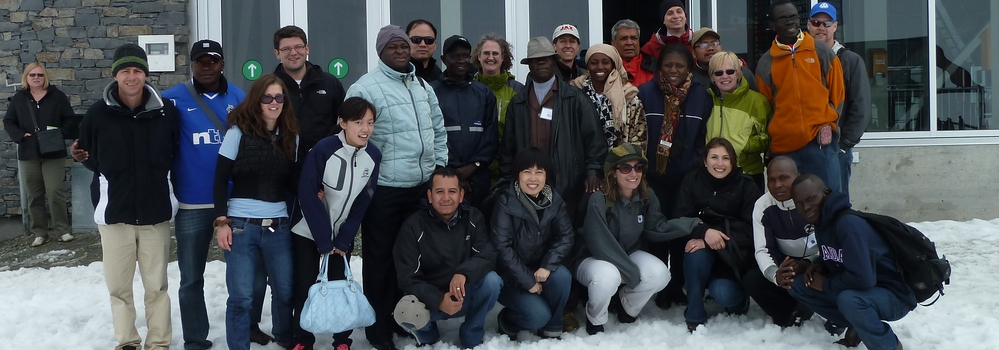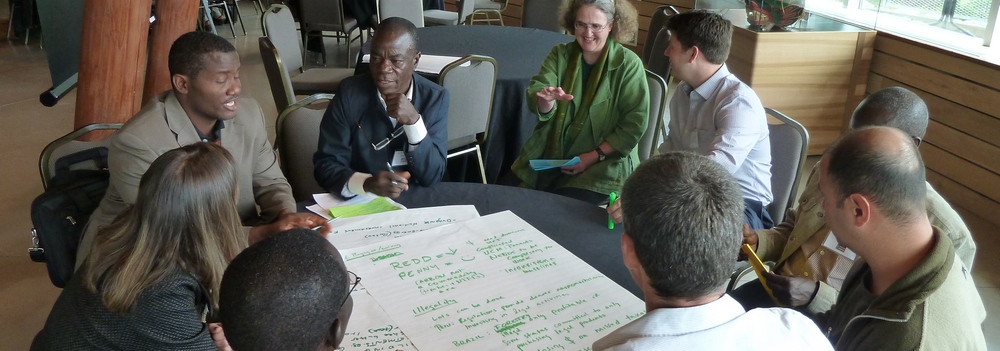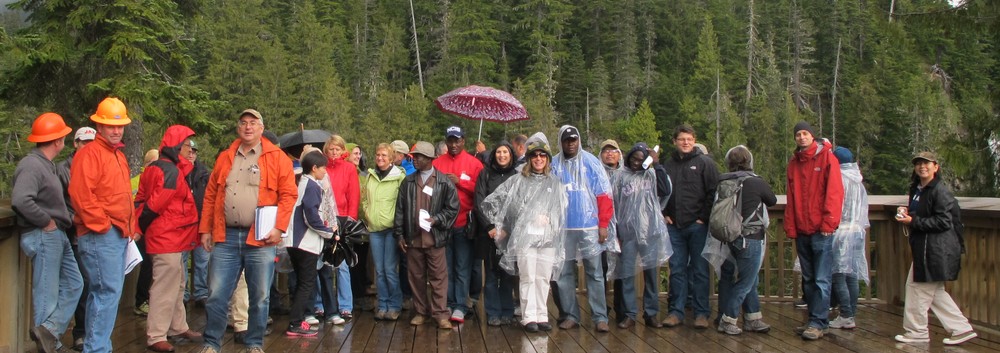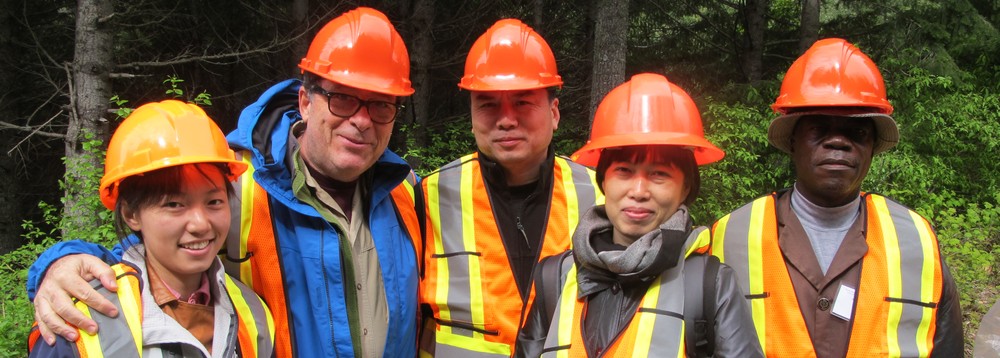On June 4-8, 2012, Rights and Resources Initiative (RRI) and the Canadian Forest Service hosted the third Next Generation of Forest Agency Leaders seminar in Whistler, along with the University of British Columbia and the Ministry of Forests, Lands and Natural Resource Operations of the Government of British Columbia. 26 forest leaders from 11 countries (Brazil, Cameroon, Canada, China, Democratic Republic of the Congo, Indonesia, Liberia, Peru, South Sudan, and the United States) gathered there, as well as 9 respected scholars and practitioners from around the world and representatives of the co-organizers.
The weeklong meeting exposed the participants to tenure reform, market changes, community forestry, Indigenous Peoples’ rights, and challenges with regulations in a relaxed and open setting that encouraged active participation. Through presentations, group discussions and a field trip to a variety of different tenured lands, participants left with a deeper understanding of global transitions and issues in forest governance. For the first time, a day was devoted specifically to leadership to discuss the unique challenges that forest leaders are facing around the world.
Topics discussed
- The special role, challenges and opportunities for public forest agencies
- Forest Agencies, Forest Areas, and Forest Industries in transition
- Impacts of Forest Tenure and Governance Reforms on Forest Agencies
- New Approaches to Deal with Climate Change, Illegal Logging and Trade
Field Trip: Callaghan Valley
The field trip focused on “Forest Administration and Land Use.” The participants drove to the Callaghan Valley and visited Alexander Falls, one of the major waterfalls in the Whistler area; adjacent to Nordic Centre for the 2010 Winter Olympic and Paralympic Games. The hosts gave an overview of land and forest ownership and land use in the area and explained the Sea to Sky Land and Resource Management Plan (LRMP). They explained how neighboring First Nations were involved in land use planning and how land use agreements were signed. Jeff Fisher, President and Forestry Manager at Squamish Forestry, talked about the traditional territories and cooperation with the Ministry of Forests, Lands and Natural Resource Operations of the Government of British Columbia.
A stop was made at Callaghan Forest Service Road where the Cheakamus Community Forest staff explained how they were managing their forests, and showed various lots that had been treated differently (use of fire or fertilization). On a third stop, the participants visited Brew Creek to see an active harvesting area within the Cheakamus Community Forest. They talked about forest stewardship planning and detailed their harvesting practices and how First Nations were involved. Finally, they returned to Whistler and took the Peak to Peak Gondola from Whistler Mountain to Blackcomb Mountain. This was a prime example of how tourism can generate revenues that can benefit the community.
Resources
- Synopsis (including the agenda and list of participants)
Presentations
- Forest Agencies in Transition: Major Changes, New Challenges – Andy White
- The Confluence of Food, Fuel and Fibre Changing the Forest Economic Sector – Sten Nilsson
- Resources for the Future: What we expect from our forests 20 years – John Innes
- Role of Smaller Forest Enterprises in Transition – Gary Bull
- Why the Need to “Rethink” Forest Regulations? – Sally Collins & Andy White
- Forest tenure: Emerging trends and lessons – Jeffrey Hatcher
- Collective Forest Tenure Reform in China – Shuxin Li
- Recognizing Indigenous Peoples’ Rights in Canada – Peggy Smith
- Forest Land Reform in Africa – Solange Bandiaki
- Forest Tenure Reform in Brazil – Luiz Joels
- Forest-Climate Initiatives: Implications for forest agencies – Jeffrey Hatcher
- Forest Law Enforcement Governance and Trade (FLEGT) – Penny Davies
- What It Takes to Change a Forest Agency: Experience from the USA – Sally Collins
- What It Takes to Change a Forest Agency: Experience from Brazil – Luiz Joels
- What It Takes to Change a Forest Agency: Experience from Nepal – Keshav Kanel




